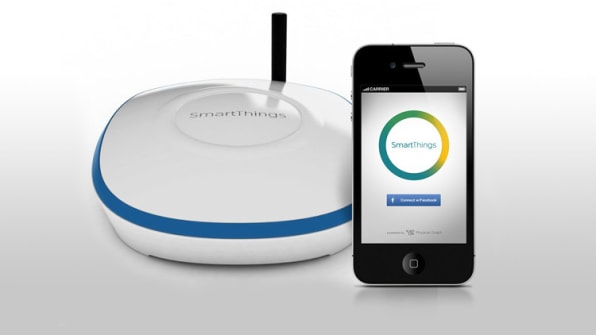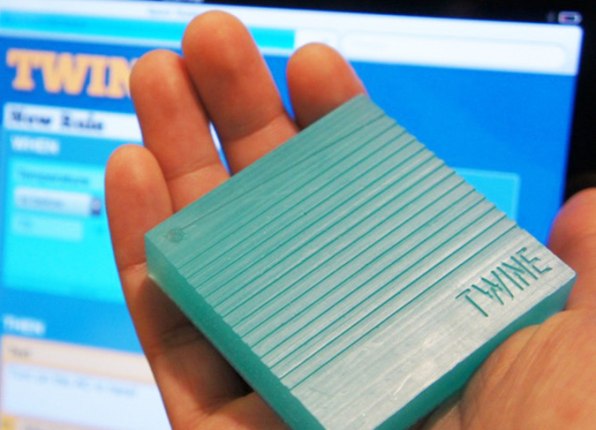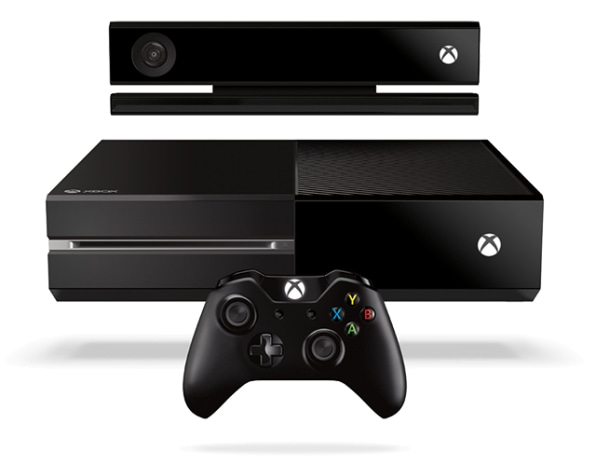If Remove This From My Home Xbox Can I Make It My Home Xbox Again
The Xbox One–Microsoft's new console appear yesterday–will accept eight times the graphical power of the last Xbox, connect to more than than ten times the global servers to push button content from the cloud, and deliver an Internet-integrated idiot box experience that'south faster and more than fluid than any other system nosotros've seen.
But while these are all exciting ideas, they're all simply launch features of a side by side-generation game panel. What volition the Xbox One await similar in, say, three to five years? Marc Whitten, Microsoft'southward chief product officer of interactive entertainment, shared his vision for the future with usa. And that future largely resides in a platform that his squad has casually dubbed Home ii.0.
"I'm not saying it's a good name," Whitten laughs, indicating that it will most certainly change when the projection goes public. Only he imagines that Abode 2.0 will let the 1 to be more than an entertainment device for your living room. Rather, information technology could be your habitation's gateway to the Internet of Things–the missing link for the inevitable future of interconnected lights, appliances, and more.

Home 2.0 would share the aforementioned space equally platforms similar SmartThings.
The Origins of Home 2.0
Habitation ii.0 may not be some official proper noun, but the project is more a hobby for Microsoft. Whitten points out that you tin actually run across its origins in Microsoft's acquisition of id8 Grouping R2 Studios–specialists in dwelling automation–earlier this twelvemonth.
Home automation, of course, is a rapidly evolving idea. Equally dumb objects in our homes become smart, the role of home automation will become one less of window-blind opening than domestic-life coordinating. "Yous need those [devices] in a cardinal hub equally an experience to bring all these things together," Whitten explains.
If Home two.0 combines id8'south existing platform expertise with the Xbox One's promised "open" support of third-political party apps (support that hasn't been entirely clarified simply yet, but seems more in line with the Windows eight app model), it could end up with a diverseness of discrete apps that represent the myriad of digital devices in our lives, all juggled underneath the fundamental Home ii.0 umbrella.
Why Microsoft Makes The Perfect Fit
As the defended homebound PC has melted abroad, the Xbox–tethered to your TV–volition make a natural fit as a hub for these objects. A console lives predictably in ane spot (unlike your laptop or your phone), it's naturally fitted with the largest brandish you own (your Television set), and every bit it's always on–or at least one "Xbox On" exact command abroad from existence on–communicating with the system requires very little man commitment.
Microsoft, of course, isn't the offset to have interest in the "Internet of Things" marketplace. Products like SmartThings are attempting to be our connected device platform for the future. Merely the advantages Microsoft has over most companies are, maybe a bit obviously, their supreme software and hardware expertise.
"There will never be one single protocol for connected devices," Whitten insists, citing that any such smart hub will need to speak a variety of languages. Say what you will nigh Microsoft, only few companies tin can rival its feel in pure interoperability. This is a company that has supported and networked with basically every slice of hardware under the dominicus for the terminal 2 decades.
And equally for the event of convincing the public to invest in such a futurist platform, "Games similar Forza subsidize the experience," he adds a few moments later, pointing out that the Xbox One will correspond an embarrassment of riches in local processing, networking hardware, and deject support. They're the powerful by-products of the Xbox's entertainment experience–or what I imagine as the digital equivalent of ownership a Ferrari for cruising around on the weekends, but using its engine to run your washing machine during the week.

Devices similar Twine are very smart and take well-designed portals, but as we own more than diverse devices, nosotros'll want a unified control for them all.
How Home 2.0 Might Work
Bated from Kinect, Whitten teases a few developments that might solidify Habitation 2.0's general usability. For one, SmartGlass–the Xbox-to-tablet/phone integration that came out this year–will receive a major overhaul. While no i has seen it in activity still, Whitten promises the new SmartGlass works much ameliorate than the laggy, unpredictable experience nosotros've seen on the current generation of 360. And SmartGlass volition allow you to control your Home two.0 devices from a Windows, Android, or iOS device–pretty much whatsoever impact screen you have in your pocket.
So, aside from Wi-Fi and maybe Bluetooth connectivity, Whitten alludes to a lot of potential in "advanced IR blasters" (that's communication based on infrared, which is the same invisible lite technology that lets your TV remote change the channel and the Kinect scan you in three-D).
"I hate to use the word 'blaster' considering it gives y'all a lousy image," Whitten admits, no doubt referencing the unreliable universal remote adapters of yore. Then he shares an chestnut that when the Xbox team was kickoff testing Kinect, the IR was so powerful that it was shutting off TVs from halfway across the office. I began to piece together the potential of Kinect (along with a few IR extenders, maybe) blanketing rooms with odorless data. And while line-of-sight limitations seem like more than a claiming to design Internet-connected devices around, I'g intrigued by the possibility. (Besides, IR has a fantastic benefit beyond all others: Information technology requires extremely piffling power to operate.)

Domicile 2.0 Isn't Today, Simply Information technology May Exist Tomorrow
So, no, Home 2.0 won't be available at launch, and it won't be called Home 2.0 when information technology inevitably arrives on the Xbox One a few years from today. Only even still, Home 2.0 has the potential to show that the I isn't simply another video game console or entertainment device, some stubborn antique in a world gone mobile. With Home 2.0, the Xbox 1 is slated to become our first, widespread ballast to the promised Internet of Things. (Though, sure, it'll play Halo, likewise.)
And I can't overstate its importance: As Google tracks and anticipates our needs through search and Android, and Apple leverages countless iOS devices to learn nearly all of the states, Microsoft has spotted its reward over both companies in ane fundamental spot: The living room, and every bit of our domestic lives, continued to information technology.
[Illustration: Kelly Rakowski/Co.Design]
gonzalezwhisterell1957.blogspot.com
Source: https://www.fastcompany.com/1672641/microsofts-home-20-will-connect-xbox-one-to-the-internet-of-things
0 Response to "If Remove This From My Home Xbox Can I Make It My Home Xbox Again"
Post a Comment